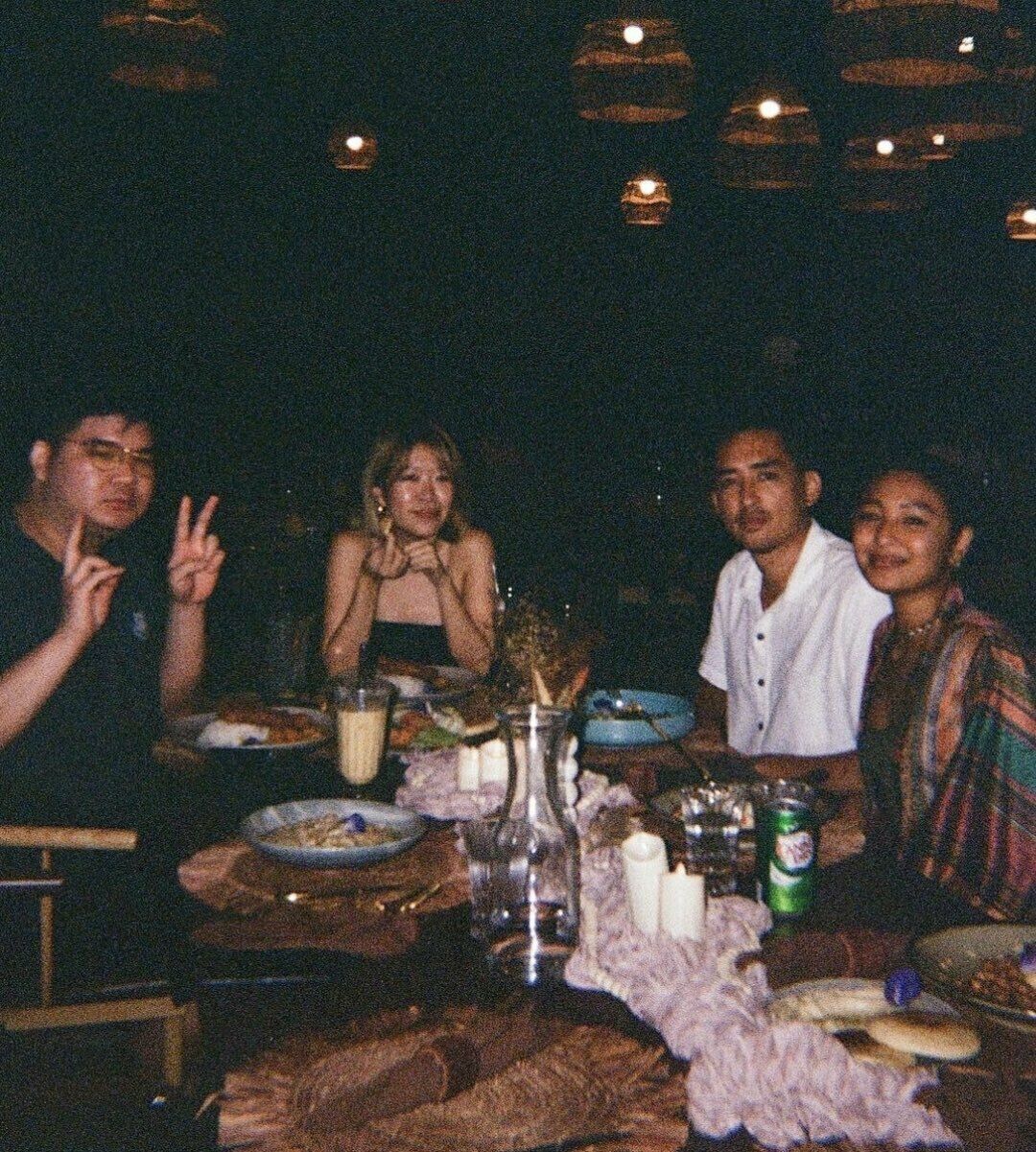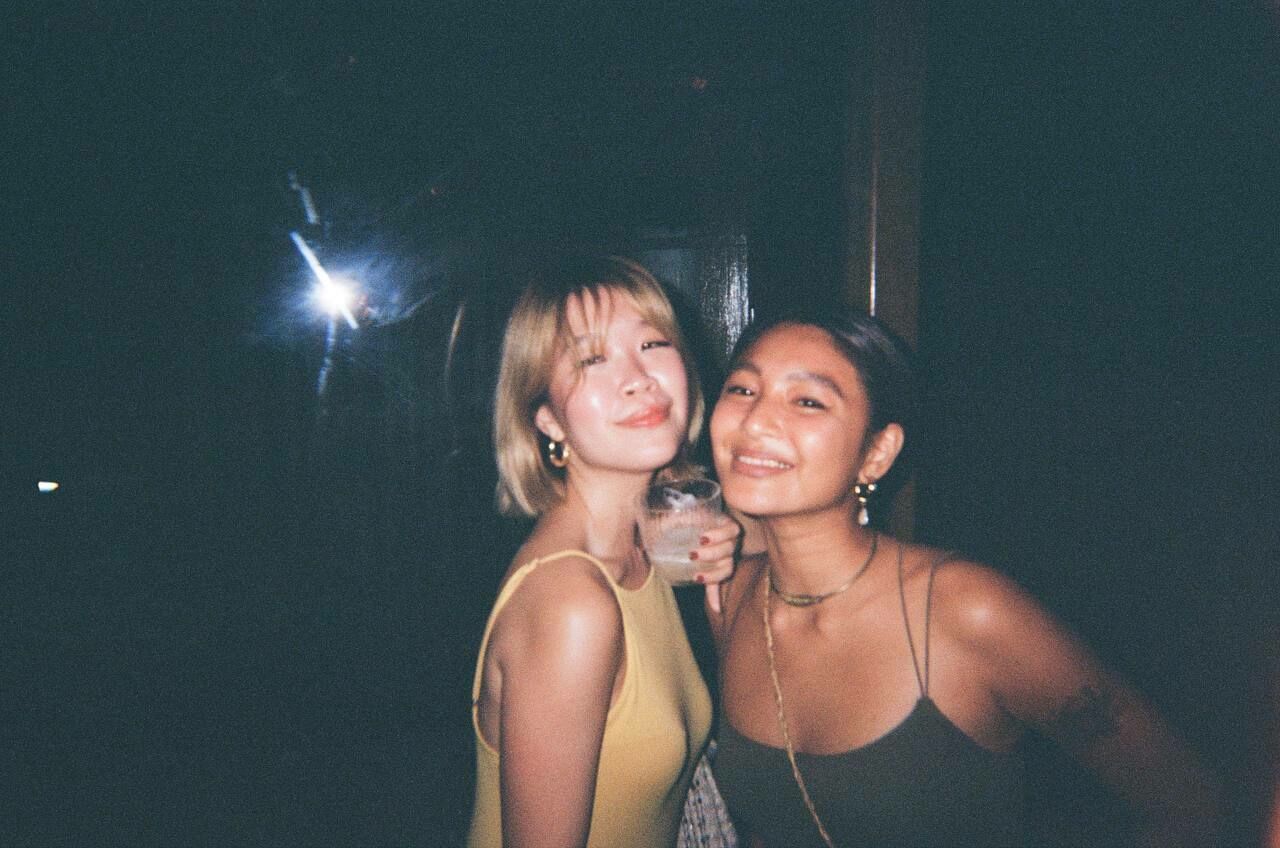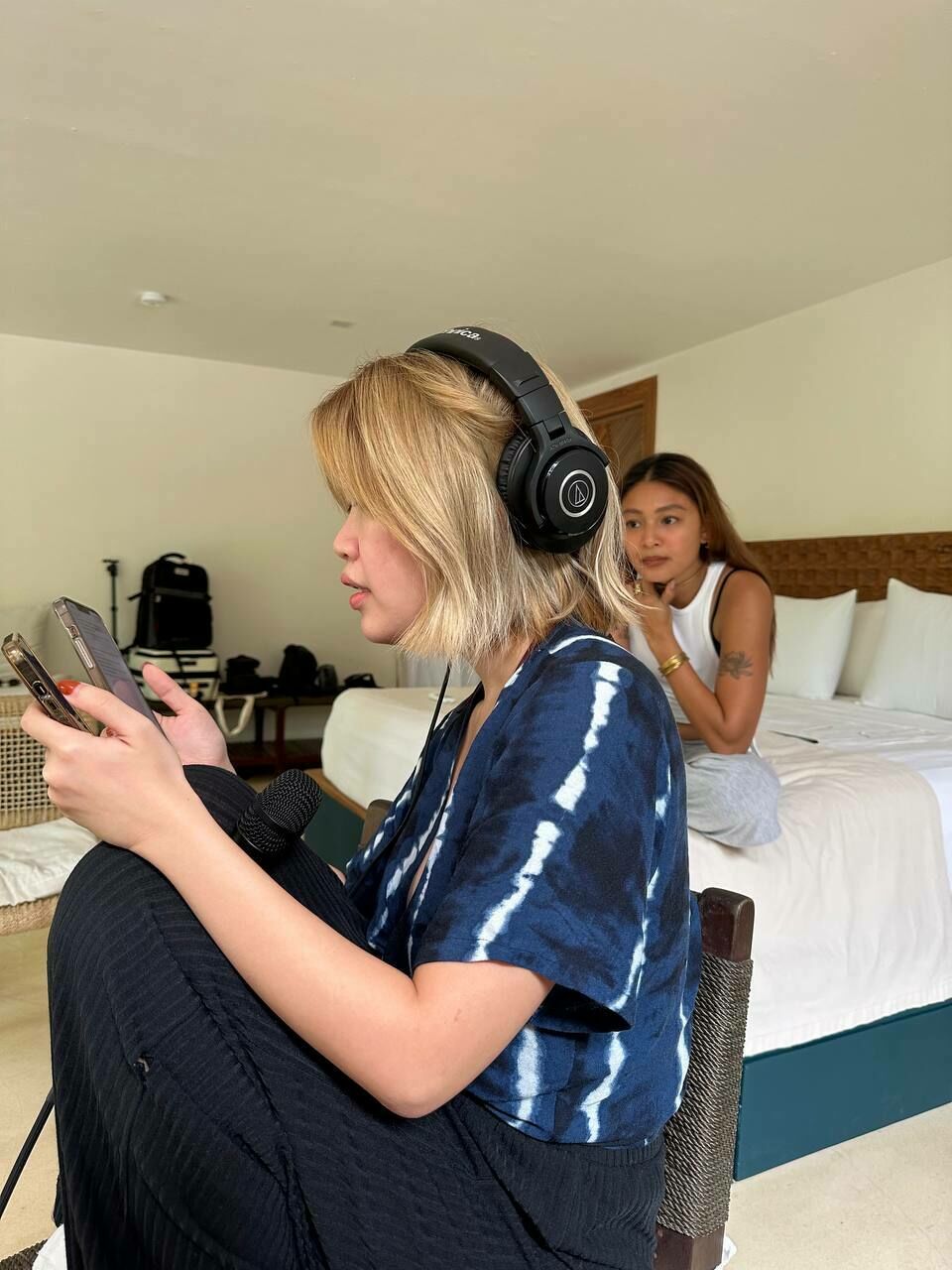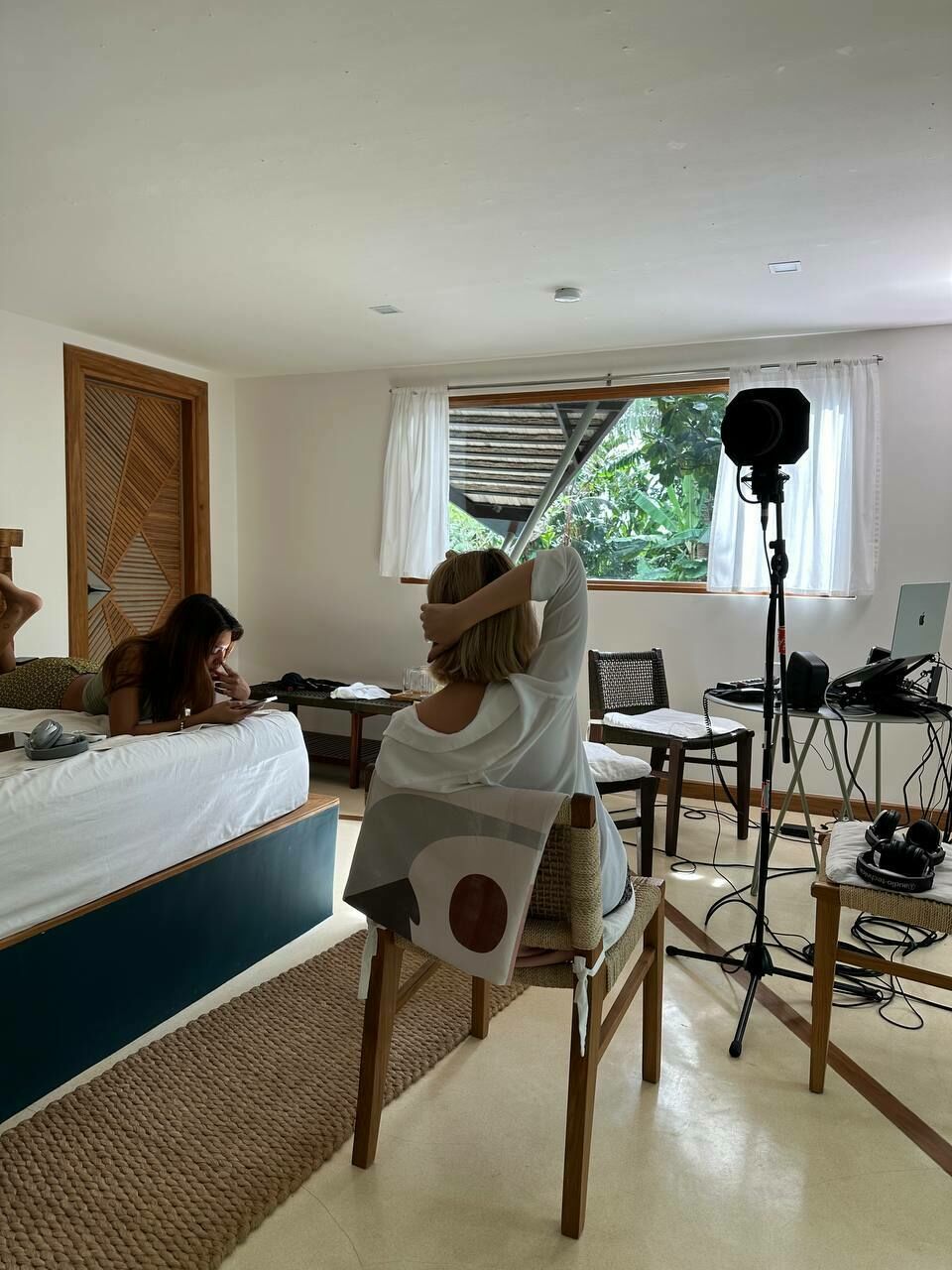Individuals who may not appear to have much in common can sometimes have the strongest chemistry when they are put together. Just look at Linying and Josh Wei.
"Friction" has always been present in the singer-songwriter and record producer and songwriter's creative relationship, but instead of creating a rift between the two, it has done the reverse of that.
When listening to Linying and Wei speak about working with each other, you can sense that there is not only mutual admiration, but also a deep level of trust between the homegrown musicians.
"We shepherd each other to keep the ship pointed in the right direction," shares Wei, who is also WILD Entertainment Group's Head of Music and a Managing Partner at Singapore-based recording studio Snakeweed Studios.
One of the latest projects to come out of this partnership is 'Overgrown', a single by Filipino vocalist and actress Nadine Lustre. Birthed during a getaway to the Philippine island of Siargao, the track — a team-up between Lustre and WILD Entertainment Group — bears the distinct touches of both Linying and Wei while simultaneously serving as a reminder of what these two minds are capable of concocting when they come together.
Following the release of 'Overgrown', Hear65 spoke to Linying and Wei to learn about their creative relationship, how they brought their latest collaboration to life, and how they approach making music for other artists.
Hi, Linying and Josh! How did you end up working on Nadine Lustre’s ‘Overgrown’?
LINYING: I was roped in by Josh Wei, who has become one of my closest collaborators ever since we started working together a little over two years ago. We discovered through spending a ton of time at Snakeweed Studios together, with me writing and him producing, that we make a complementary team writing songs for other artists. He very kindly called me when this project came through, and told me to get ready to spend a week on a remote island in the Philippines. I didn’t bat an eye.
JOSH: Leonard [Lim], the CEO of WILD, had connected with Nadine earlier in the year in Manila and they talked about the possibility of working on a record together. The conversation started to become more serious, and Leonard roped me in to close the deal and see the production through to the end.
View this post on Instagram
Nadine’s such a big name from the Philippines’ music scene. What was it like collaborating with her to bring this track to life?
LINYING: She is; I was bowled over the very first night when we went out for a drink and had mobs of people trailing us from behind, shoving cameras into her face. It was, like it is with every artist I write for, an intimate experience, having to distil what someone really wants to express from an initial conversation. I was grateful that we had a few days to get to know one another before going into the song.
JOSH: Nadine is a class act, she does not compromise on her vision. She challenged both Lin and me to create something special and I think it shows in the record. It didn’t hurt that we spent a week on a private resort surrounded by nature, a beautiful pool, a beach, and endless amounts of fresh juice. A typical day would be breakfast and pool/beach in the morning, studio in the afternoon, dinner and party at night.

Credit: Linying (Instagram)
"[Nadine] challenged both Lin and me to create something special and I think it shows in the record."
Linying, as the song's co-writer, what did you hope to convey to listeners through its lyrics?
LINYING: Nadine and I spent hours by the pool talking about girlhood, being perceived, and being our parents’ children. It rained a lot. I remember thinking all this vegetation surrounding us must be overgrown by now; it made me think about how our experiences turn us into people we can never un-become, even when it’s all over.

"Nadine and I spent hours by the pool talking about girlhood, being perceived, and being our parents’ children."
How does writing a song for another artist differ from writing a song for yourself? What do you have to consider while doing the former?
LINYING: For me, the only difference is that I have a slightly murkier vantage point from which I can write, just because I don’t know what it’s truly like to be someone else. All I can go off of is what I’m told, and how much someone is willing and able to open up to me in our conversations together.
I like being able to take our first couple of hours together warming up to one another, sharing a meal, and just talking before we even broach the song. It helps me get to know someone better and live inside their head a little bit. I know what it’s like to be the artist in the room, and it can be really uncomfortable when co-writers force a narrative that doesn’t feel characteristic, or use words I would never use in the name of making the song “a hit”, so I try my best to apply that whenever I’m in their position. It’s important to me that the artist’s preferences are prioritised.

"I like being able to take our first couple of hours together warming up to one another, sharing a meal, and just talking before we even broach the song. It helps me get to know someone better and live inside their head a little bit."
And Josh, what kinds of emotions did you hope to evoke in listeners through the track’s production?
JOSH: Introspection, self-love, and happiness.
As someone who has worked with a variety of artists, what are some key things that you think a producer would need to take note of before starting to work on a song?
JOSH: I actually think the most important part of the process is before we actually start. Understanding what the artist is going for and how I can fit in and help them achieve their vision while maintaining my own artistic standards is paramount. I’ve also found that setting artistic boundaries can be helpful with some artists. Many times, a game struggles to be fun or make sense if there aren’t rules.

Credit: Nadine Lustre (Instagram)
"Understanding what the artist is going for and how I can fit in and help them achieve their vision while maintaining my own artistic standards is paramount."
You wrote and composed 'Overgrown' together. Tell us what the working relationship between the two of you is like.
LINYING: Josh and I… have a level of musical closeness I’ve never experienced with any other collaborator. We probably saw each other more than we had seen our own families, friends, and partners in the two years we were making my record together while working on songs for other artists. We’d see each other most days a week for six hours at a time, have iterations of the same conversations at the hawker centre under Snakeweed, and fight the same fights over melody and note choice.
We have extremely differing musical tastes and listening habits, enjoy completely different artists, and are 90% of the time in disagreement when it comes to where a song should go, which is why, when we do manage to find that 10%, it always feels like we’re on top of the world. It’s a strong Top Five feeling — it never gets old. We talk all the time about how lucky we are to experience this level of camaraderie and kinship with one another.

"Friction is so important to create art, but it has to be with the right person."
JOSH: Lin is my artistic soulmate and this isn’t the first time we’ve worked together. I think I saw her three times a week for two years before she moved to LA! Typically, I’m more on the melody and she’s on the lyrics, but we shepherd each other to keep the ship pointed in the right direction. We have a great amount of respect for each other, and that allows us to ideate freely, but also stop to consider and listen to each other when conflicting ideas are presented. Friction is so important to create art, but it has to be with the right person.

"I think any musician anywhere can benefit from displaying and receiving vulnerability, sharing their gifts and learning from one another."
How do you think being involved in international collaborations such as 'Overgrown' can benefit local musicians?
LINYING: I’m inclined to believe that any initiative that encourages more music to be made alongside people who exist outside of one’s immediate community is always a positive one. I think any musician anywhere can benefit from displaying and receiving vulnerability, sharing their gifts and learning from one another.
JOSH: Singapore is a small market in comparison to the rest of the world. Working on international projects provide us with exposure and experience in bigger markets. This not only gives us a chance to find success overseas, but also allows us a broader and more well-informed perspective when working on projects back home.



